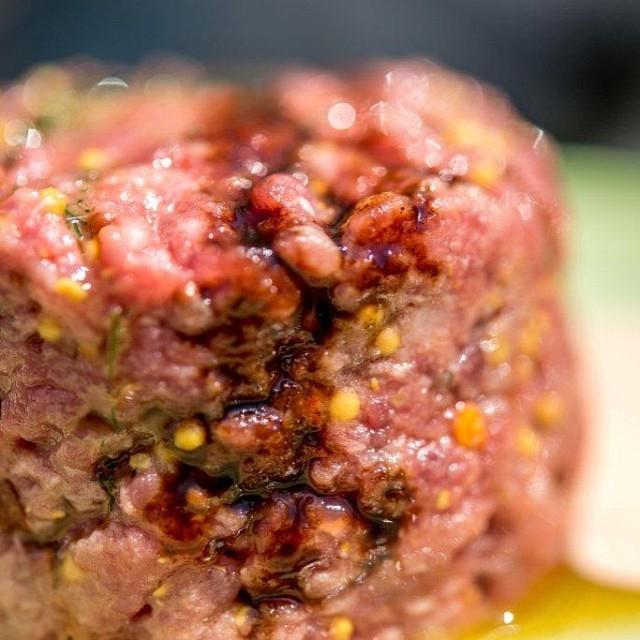

The Spanish cuisine has always been well respected. However, with chefs of the likes of Ferran Adrià, the Roca brothers from Girona, and the master chefs from San Sebastian, it has ascended the throne of world culinary. But in 2011 Adrià chose to close his elBulli restaurant which gained him fame and three Michelin stars, and decided to exchange his molecular extravagant style of cooking for the Tickets bar in Barcelona, where he now serves - tapas.
With that he returned to the basics and to the most popular Spanish snack, roughly translated as "tapas". Let's take a look at the definition: Tapas can be served cold (cold meats, spiced sausages, olives, cheese…) or warm (squids, shells, ragout, meat balls…). In some places in Spain tapas has developed from being just a simple snack to sophisticated, ambitious and specialized cookery.
The essence of tapas bars is that you don't go there for a proper meal. You go to enjoy and treat yourself to a glass (or two) of quality wine and a couple of plates of warm and cold tapas. The size of the plate depends on the price and you can easily afford to taste four tapas for the price of one normal plate.
And that's the concept Patajac is putting on. He opened his pleasant TaBar according to the Spanish concept, but included an unmistaken Slovenian (read: Kras) flavour. The result? An extraordinary eclectic mixture of Spanish, Slovenian and other delicacies. The Spanish cuisine developed under different influences. We can say the same for Slovenia, where Balkan, Austro-Hungarian and Mediterranean influences intertwine in a small region.
A seasonal menu, traceable products
In respect to all that we can find many things in TaBar's seasonal menu. From the fashionable pork cheeks with boiled red beets and Patajac's trade mark beef tartare, with which he thrilled at the Odprta Kuhna event, to oysters in tomato sauce with garlic, fennel and chorizo sausages. From roasted venison with Piran salt and grilled octopus with polenta, to dark chocolate mousse with extra virgin olive oil from Slovenia's Istria region.
The traceability of their products is something many restaurant owners try to emphasize. That's why at Patajac's establishment you always know from which Kras farmer they get their homemade salami or albumin cottage cheese, and where they get their rocket salad, which is well represented on TaBar's plates. The apple reduction sauce and jam are homemade, brought in from the Ruj snack bar, as is the pasta, made by Patajac's wife Vildana, who is now more in charge of looking after Ruj. They also have some products from Spain, like the spicy chorizo sausage. In short they promise to bring the renowned Spanish Serrano ham. The majority of the products they have on offer, especially the prosciutto, salami, cheese, cottage cheese and jams, can also be bought in TaBar's boutique food shop.
Local, seasonal
No wine bar would be complete without a selected wine offer. At TaBar they currently have a limited collection of wine labels, but that's why it's all the more carefully selected, with an emphasis on Slovenian organic wine. As house wines you currently have on offer the Štekar pinot gris wine (10 euros per bottle or an acceptable 1,7 euros per glass), the Cigoj green sauvignon, the Klenart cabarnet sauvignon and the barbera wine from the Sončni škol cellar. Most of the 28 wine labels on offer come from the Slovenian regions of Istria and Goriška brda. The in-house sommelier is there to give you good advice on which wine goes best with the plate of your choice.


































































